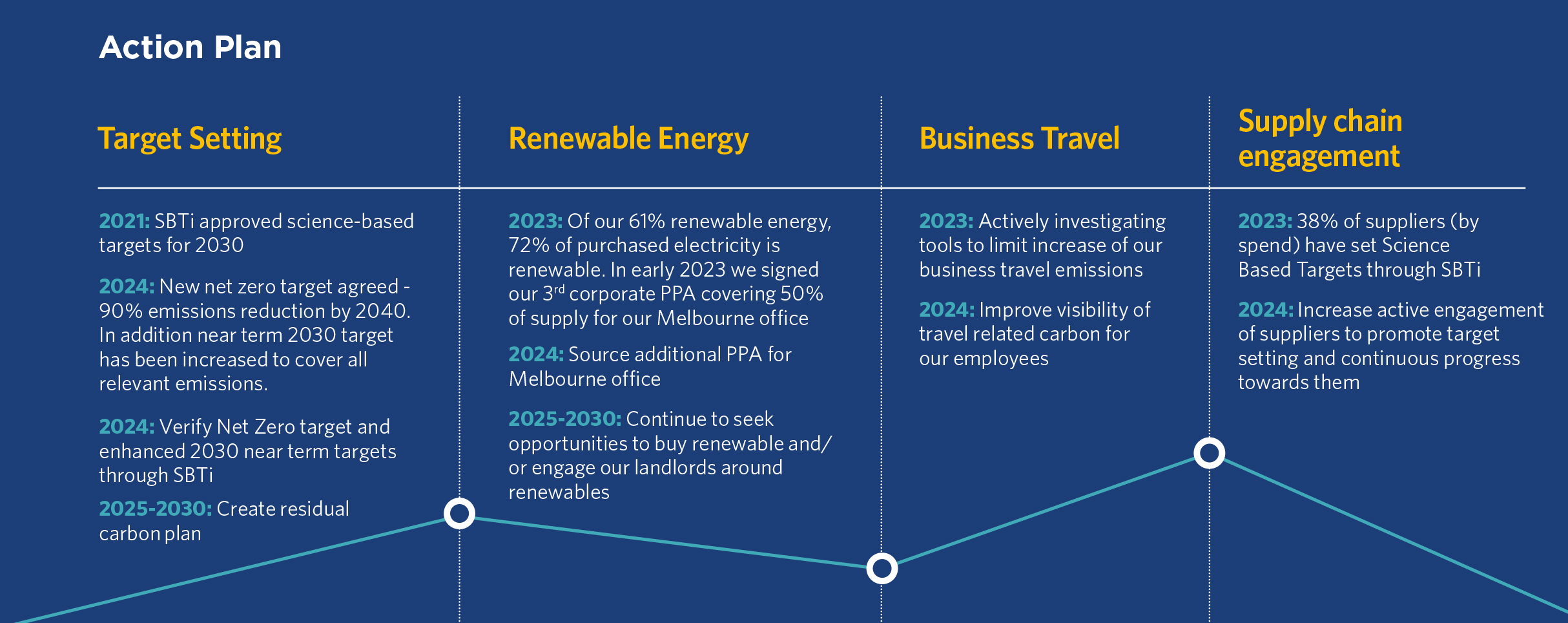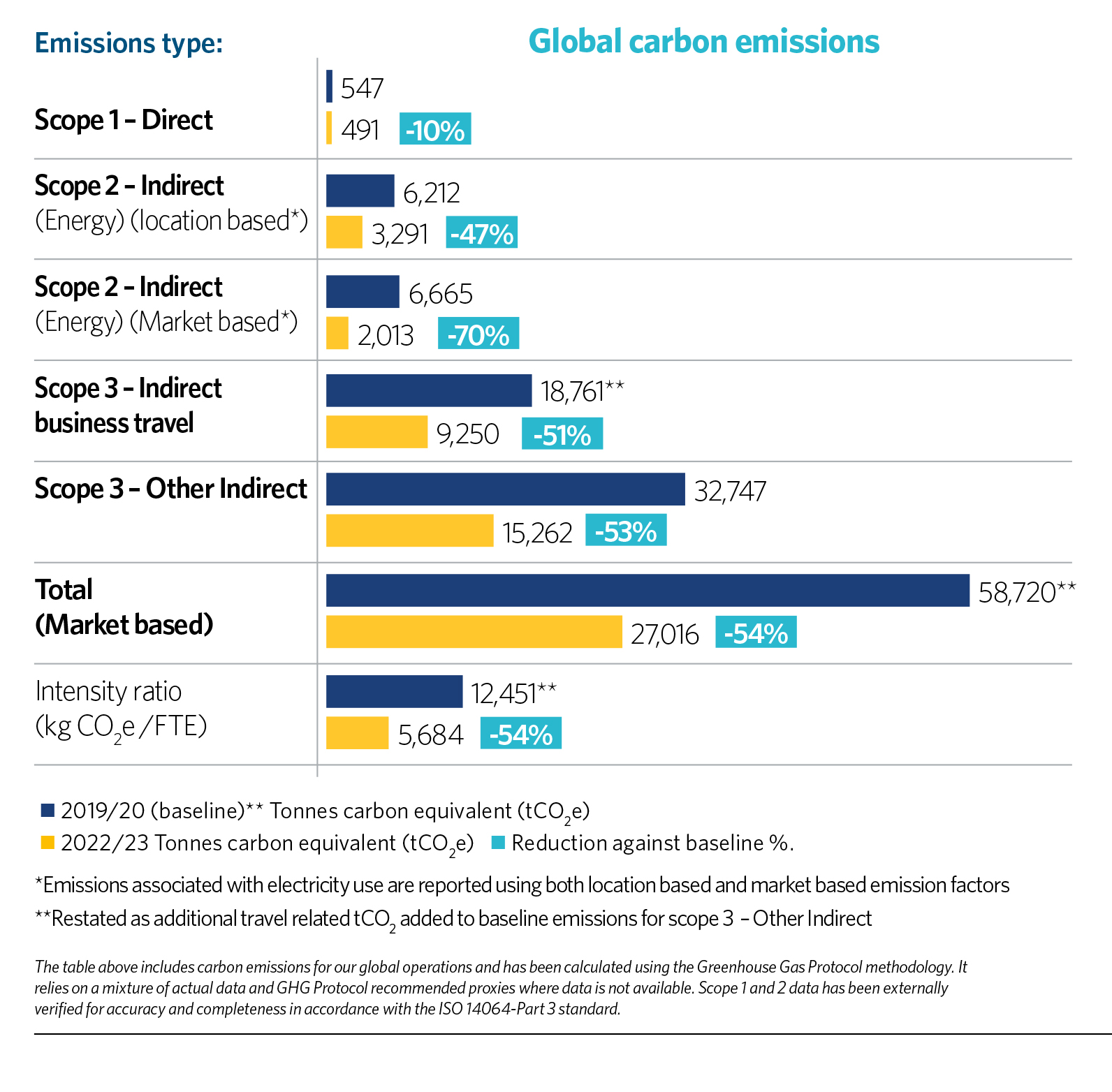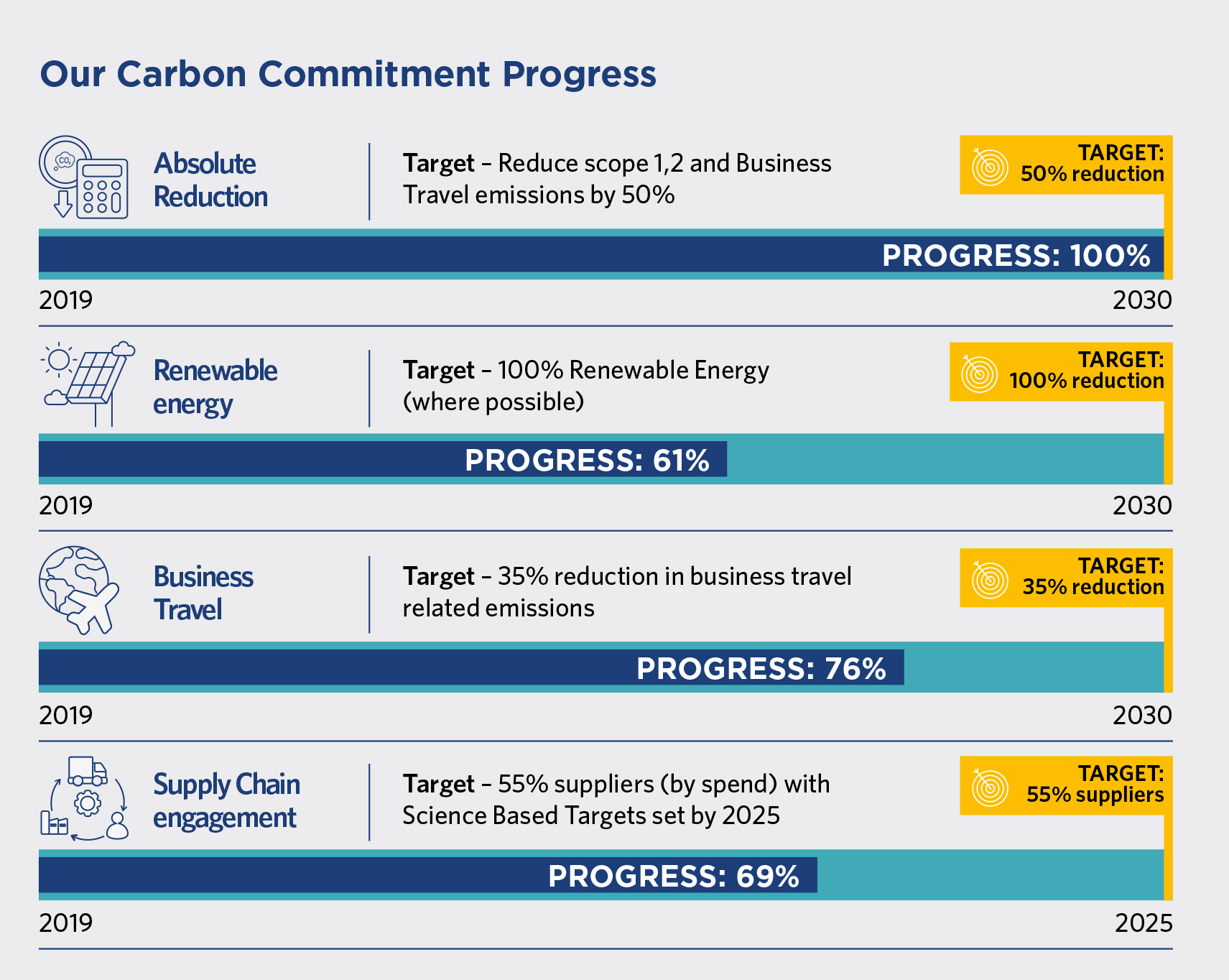As of January 2024 we have set a new net zero target to reduce our absolute emissions by 90% by 2040, which aligns with the expectation of the SBTi Net Zero Guidance. This replaces our previous net zero target to reduce our emissions by 50% by 2030 and offset remaining residual emissions, which had been made in line with prior thinking regarding net zero commitments.
In 2021, we set near-term targets for 2030 which were validated by the internationally-respected Science Based Targets Initiative (SBTi). Alongside with the new enhanced net zero target we announced we have also increased the scope of our near-term target to encompass all relevant emission fields, increasing the percentage of emissions from 40% to 100%, and will seek re-validation from the SBTi.
Best practice and standards around target setting change to adapt to new scientific understanding of the emission reductions required and we believe re-positioning our targets to ensure we are aligned to the latest thinking is the right thing to do.
Our near-term target includes the following commitments:
- Reducing our overall emissions by 50% by moving to renewable energy; reducing emissions from business travel; and working with suppliers who are also committed to lowering their environmental impact.
- Matching our energy usage with renewable energy purchase.
- By 2025, actively engaging with our suppliers and ensuring that 55% of our suppliers by spend have science-based targets for reducing their emissions.
- Improving our transparency via reporting through the voluntary disclosure platform of CDP, a leading charity promoting environmental reporting.
Our progress so far and next steps
We continue to make strong reductions in emissions versus 2019 and we are making good progress towards our headline commitments under SBTi, as shown in the visuals shared below.

We are proud of the progress made in our commitment to grow our use of sourced renewable energy work towards which includes having three active power purchase agreements – a mix of wind and solar – for our offices in Sydney and Melbourne. This brings our total energy procured directly from renewable generation to 13% globally and our overall total of renewable energy being purchased to 61%. We achieved ISO 50001 recertification for our UK-based operations in 2021, confirming our ongoing improvement in performance and energy efficiency.
To deliver on our commitments and targets, carbon reduction needs to be threaded through all our operations from our building choices and the suppliers we work with to how we package the food in our restaurants. We are busy ensuring we have robust plans to take us to 2030 and beyond and will continue to share these with you.
Our primary sustainability focus is carbon, as it is our most material environmental impact as an office-based organisation. However, we continue to engage with our employees and suppliers on other sustainability topics such as reducing single-use plastic and consumption reduction.
Carbon offsetting in support of local environment and communityWe are reviewing our transition to carbon-removal offsets to meet the requirements of SBTi and our net zero goals. In the interim, we continue to support carbon-reduction projects. In 2017, we partnered with UPM GmbH to support a Gold Standard certified carbon offsetting project in China. Through our offsetting so far, we have supported over 2,800 impoverished families in rural China by helping fund an initiative that gives low-income people access to clean, convenient and free biogas for cooking, heating and lighting; and we aim to support 5,000 families by 2026. The Sichuan Household Biogas Programme's aim is to install 1 million biogas digesters – which recover methane emissions from animal manure to provide clean fuel – and smoke-free cooking stoves in one of the poorest regions in China. Thanks to the initiative, the impoverished families in rural China are getting a chance to lead healthier, happier lives. The project helped not only to reduce carbon dioxide emissions but also to improve the respiratory health of residents in a region where air quality suffers dramatically from heavy reliance on coal for household fuel. Additionally, our contribution has a multiplier effect that generates annual financial co-benefits through salaries and wages paid to local workers for constructing biogas digesters and the increase of disposable income for all supported low-income rural households. |
I think that the main reason for building a digester is that it helps save money. But it has also a lot of additional benefits: our home is now free of smoke, flies and smells. It is also much more convenient for me to manage our family business while taking care of the cooking. With more pigs we would even be able to use the biogas for lighting and heat water for the shower.
Huang Mingying
Resident of a small village in the Sichuan region


